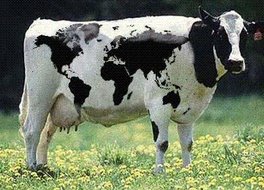WHO pledges AI vaccine stockpile for poor countriesI didn't know we had a good vaccine developed yet, but if we do . . . of course, they should be distributed to where they'll be the most efficacious -- wherever the disease occurs! Why not, if we're doing a centralized production, do a centralized distribution based on actual risk analyses? Oh, right, that would be using science to make decisions. We generally prefer economics or politics, which leads me to the second issue:
By Tom Johnston on 4/9/2007 for Meatingplace.com
Following calls from developing nations to more fairly distribute avian influenza vaccines, the World Health Organization said it will establish a global stockpile of vaccines for poor countries.
WHO director general Margaret Chan, who recently visited Indonesia, said the vaccine reserve would be critical for helping developing countries battle bird flu, the Jakarta Post reported.
Chan met with Indonesia President Susilo Bambang Yudhoyono recently to discuss worldwide vaccine production, some of which depends on virus sample supply from Indonesia.
"We will look at how to develop global stockpiles of vaccines, particularly for developing countries," Chan said, noting that WHO would gather resources from affluent countries, donors and large pharmaceutical companies.
Chan also noted that developing nations will have to fully cooperate in the world's fight against avian influenza. "The sharing of information on the virus is a requirement for all countries under an international health regulation which will come into effect June 15," she said.
WHO presses China for human AI samplesThey share that there are 5 cases, plus an old one they didn't mention, but they refuse to share the samples. Who actually believes there were only 5 cases? And that the samples of any or all of the cases will be shared just by asking? Sometimes, though, I think China obfuscates for the sake of having a secret. They don't lose anything by sharing samples except their scientists having sole access to a set of samples that probably aren't special enough to give them an edge in publishing etc. By sharing those samples, they would get the free benefit of the WHO's expertise. Not even free -- they've already paid for it by supporting the WHO as a member nation!
By Alicia Karapetian on 4/18/2007 for Meatingplace.com
China has not shared human samples of highly pathogenic avian influenza in a year, the World Health Organization said on Wednesday.
WHO officials contend that the lack of access to samples could hinder efforts to combat the disease, the Associated Press reported.
"Since [samples were last shared] there have been five H5N1 cases in China, plus a Beijing 2003 case reported in 2006," WHO Spokesman Joanna Brent told AP.
WHO hopes to receive two samples from the five recent victims in addition to the 2003 case.
You probably haven't read anything in the news about H5N1 in a while. It's not gone. It's just not going anywhere.

No comments:
Post a Comment